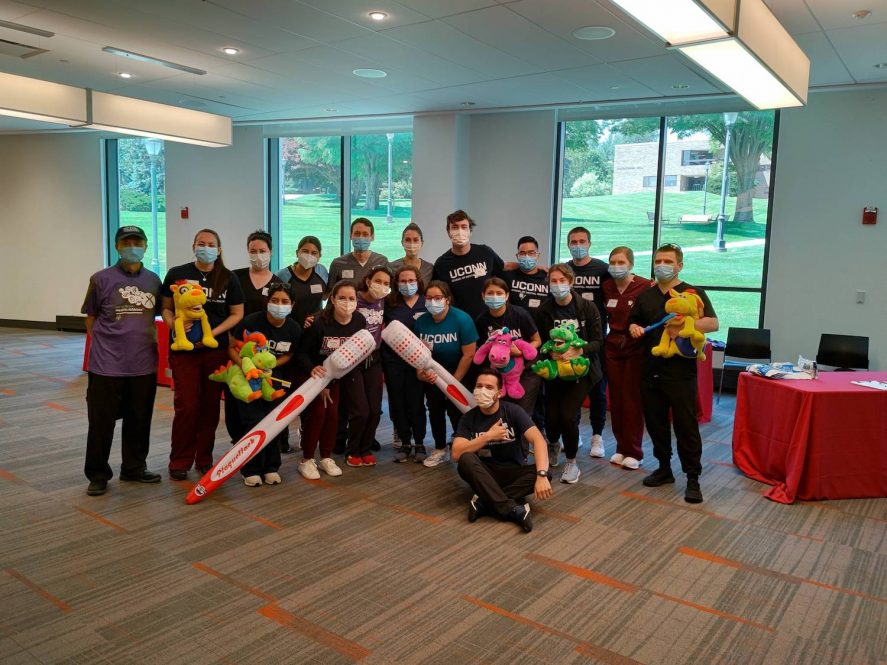UConn Health will dramatically expand the dental services for patients with special health care needs thanks to a $250,000 grant from the Delta Dental Foundation.
The three-year grant will enable the School of Dental Medicine to hire faculty, provide training, offset dental expenses, and offer more flexible hours, including weekends, to treat patients.
The grant is aimed at helping patients with special health care needs, including developmental disabilities, autism, and patients with acquired disabilities, such as traumatic brain injuries or Parkinson’s Disease.
“One of the barriers these patients face is having family members or caregivers able to take time off from work to take them to the dentist,” says Steven Lepowsky, dean of UConn’s School of Dental Medicine.
To address this, the school will host Special Care Days on weekends starting this summer to provide more flexible times for appointments.
“This will expand our capabilities and our capacity to have a significant impact on the amount of care we provide and help address issues of access to care,” Lepowsky says.
As a result, UConn Health estimates it will be able to provide an additional 900 outpatient visits, 72 additional operating room procedures, and up to 300 more visits on weekend Special Care days.
The Delta Dental grant also will help offset the costs of hiring additional faculty trained and experienced in managing patients with special needs. The new faculty members will develop educational content to prepare students and residents to treat patients with special health care needs. They will also develop Continuing Education courses to benefit practicing dentists in Connecticut.
“This will expand our educational programming so that we’re helping to create a more confident workforce to address the needs of patients with special needs,” Lepowsky says.
The School of Dental Medicine already provides more services to patients with special health care needs than anywhere else in the state, Lepowsky says. The School partners with the Connecticut Department of Development Services and Special Olympics Connecticut to host free dental screenings for athletes at Special Olympics events.
While hosting these “Special Smiles” days, the faculty, students, and dental residents who run them have noticed that some of the athletes don’t follow up with the recommended dental treatments. To address this, the grant will enable the school to partner with Special Olympics to implement a robust tracking and referral program to ensure that patients get follow-up appointments.
“We hope this program improves the oral and overall health of those with special health care needs,” says Delta Dental Foundation President Caryl Russo, Ph.D. “Oral health care is overall health care. People with developmental disabilities often face a myriad of systemic health conditions and addressing their oral health care needs can lead to better overall health outcomes, which leads to a better quality of life. It can be incredibly difficult to find practitioners who can provide this type of specialized care and the UConn Health Special Care Dentistry Program is filling this gap.”
The grant will increase the pool of funds available to assist families with financial challenges. This will allow the School to provide dental care on a sliding scale or to even waive fees.
“This program is important because, in addition to providing vital dental treatment, it also provides peace of mind to patients and their loved ones,” Russo says. “Life is stressful, especially when someone you love has special health care needs. This program will hopefully alleviate some of that stress and improve the oral health of thousands of patients that may have otherwise gone without dental care and address issues before they become more dire and critical.”



